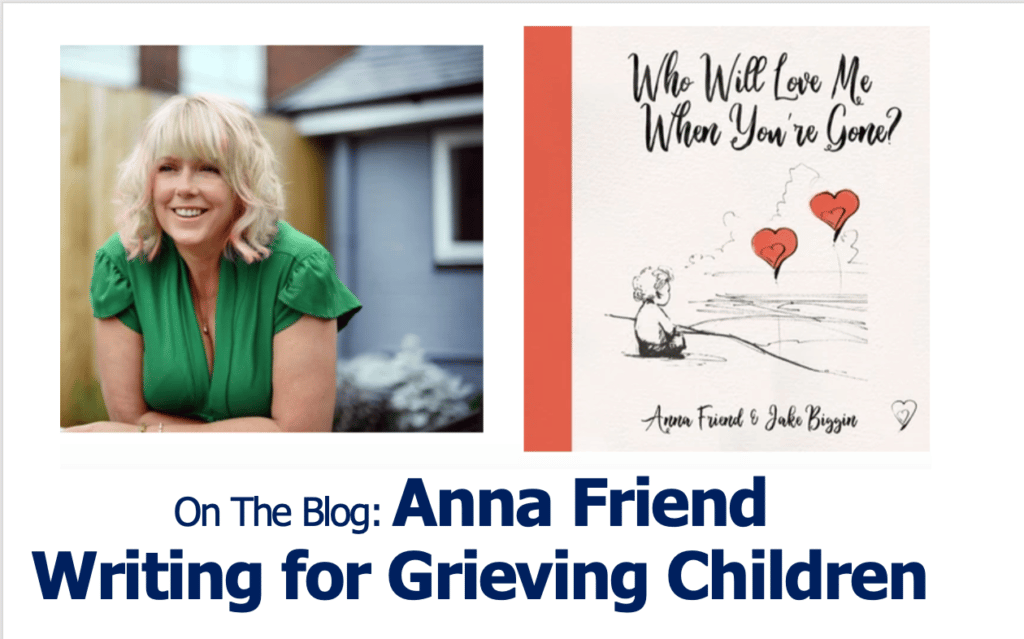We are delighted to welcome author Anna Friend to our blog today. Anna’s new book Who Will Love Me When You’re Gone? (available here) is published this month.
The book, which is illustrated by Jake Biggin, is a journey through grief and aims to be a resource for children under 6 who have experienced loss. Anna was inspired to write this book in memory of her friend Ellen Wollaston-Cooper, who lost her life to breast cancer, but prepared her young family for the journey they were on with love and strength. Anna was moved by the way her friend prepared her young children for the loss of someone close, and wanted to write a book that would help other grieving families.
Author Anna stopped by our blog this week to tell us more about the task of writing for children who have lost someone that they love…
Guest Post – Writing for Grieving Children
by Anna Friend author of Who Will Love Me When You’re Gone? (available here)
I always consider myself to be very lucky to come into contact with so many fantastic and creative young children in my work as drama teacher. For the past 6 years I’ve had the opportunity to learn so much about how they think, how they feel and what I can do to help them navigate life. So when Jake and I were considering publishing the Big Little Hearts Series, it felt like a natural step to not only give them the opportunity to think and feel about the situation presented in the book itself but also to offer ways in which they might deal with these.
Anxiety within young children is definitely on the rise sadly, and after the rise in COVID, being separated from friends, changing routines, I’ve seen a real difference in how some children feel about life and their own worries.
The latest book, Who Will Love Me When You’re Gone?, which came out on December 2nd alongside National Grief Awareness Week, has been created to help children and their families, communities and carers to talk about and cope with the loss of someone that they love. It’s a big conversation to have, and Jake and I were always very aware that anyone facing this situation and having to introduce a young child to the concept of loss can never feel truly ready to say these words.
That is why the book exists, so that in that moment, the words are there for you, to start this conversation, provide comfort and open the doorway to an open and loving dialogue about what’s to come and what has passed.
But, we also felt it was our responsibility to be there after the book has finished, after the conversation and continue to offer support and this is why at the back of this book and all our books, we provide a guide to 3 mindfulness exercises that are there to help families connect and will, by the very nature of them, reduce anxiety and work towards a feeling of connection and calm. Each exercise works in a different way and brings the child into the present, asking them to connect with their surroundings, their breath and the person they are sharing this time with.
Jake and I hope that this will form an integral part of this series, with children and their families taking part in these calming moments and sharing this very special space together. Nothing can make their situation easier but we hope that these moments will bring some positivity into the hardest of times.
——————–
Who Will Love Me When You’re Gone? is available to purchase from Amazon or from BookShop.Org.
See more children’s books about bereavement and loss here.
Where next? > Visit our Reading for Pleasure Hub
> Browse our Topic Booklists
> View our printable year group booklists.
> See our Books of the Month.









